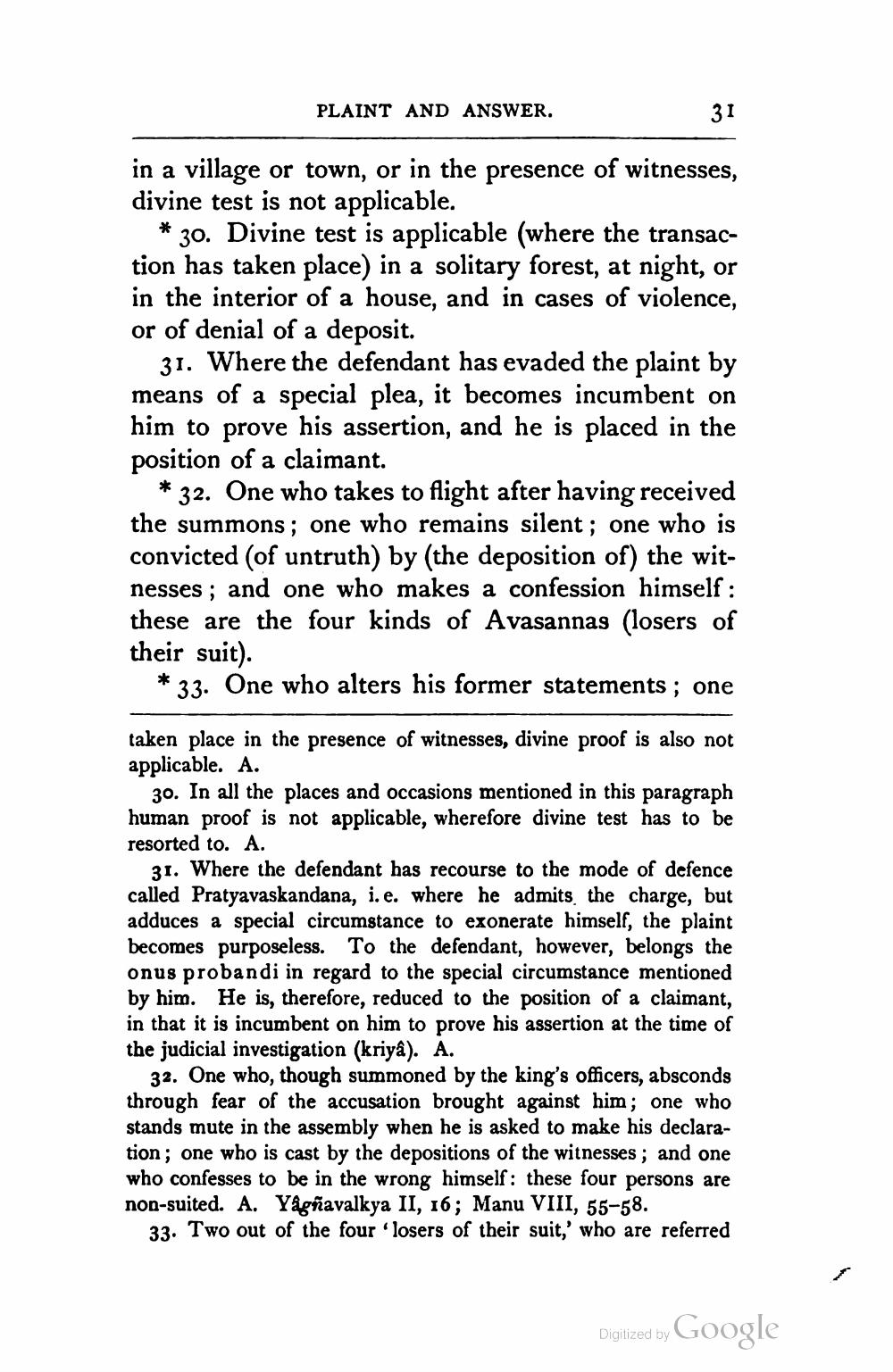________________
PLAINT AND ANSWER.
31
in a village or town, or in the presence of witnesses, divine test is not applicable.
* 30. Divine test is applicable (where the transaction has taken place) in a solitary forest, at night, or in the interior of a house, and in cases of violence, or of denial of a deposit.
31. Where the defendant has evaded the plaint by means of a special plea, it becomes incumbent on him to prove his assertion, and he is placed in the position of a claimant.
* 32. One who takes to flight after having received the summons; one who remains silent; one who is convicted (of untruth) by (the deposition of) the witnesses ; and one who makes a confession himself : these are the four kinds of Avasannas (losers of their suit).
*33. One who alters his former statements; one
taken place in the presence of witnesses, divine proof is also not applicable. A.
30. In all the places and occasions mentioned in this paragraph human proof is not applicable, wherefore divine test has to be resorted to. A.
31. Where the defendant has recourse to the mode of defence called Pratyavaskandana, i.e. where he admits the charge, but adduces a special circumstance to exonerate himself, the plaint becomes purposeless. To the defendant, however, belongs the onus probandi in regard to the special circumstance mentioned by him. He is, therefore, reduced to the position of a claimant, in that it is incumbent on him to prove his assertion at the time of the judicial investigation (kriya). A.
32. One who, though summoned by the king's officers, absconds through fear of the accusation brought against him; one who stands mute in the assembly when he is asked to make his declaration; one who is cast by the depositions of the witnesses; and one who confesses to be in the wrong himself: these four persons are non-suited. A. Yågñavalkya II, 16; Manu VIII, 55-58.
33. Two out of the four 'losers of their suit,' who are referred
Digitized by Google




